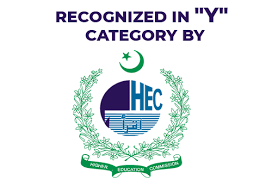Evaluating the State Laws and Regulations of Microfinance Institutions (MFIs) in Asia: A Comparative Study
Abstract
 Abstract Views: 176
Abstract Views: 176
This study evaluates the laws and regulations of Microfinance Institutions (MFIs) in Asia. It compares the regulatory framework of MFIs with institutional development and macroeconomic perspective and concludes that central banks control formal MFIs by applying legislation. Conversely, semiformal MFIs are regulated and controlled by a government body or an apex organization. Unfortunately, informal MFIs are not regulated at all. It was observed that even though regulations are effective; however, the ownership structure, governance, and internal controls are not adequate and appropriate for all types of MFIs. Since the existing rules do not apply to all MFIs, this study recommends formulating special prudential regulations for MFIs, similar to the ones used in the banking sector. Formulating regulations should be the responsibility of the government, central banks, private sector, and the donors. Furthermore, regulators should develop a separate team of qualified members to monitor the regulatory environment, protect the interest of depositors and donors, and encourage MFIs to attain sustainability as well as outreach.
Keywords: central banks, Microfinance Institutions (MFIs), prudential regulations, regulatory body
JEL classifications: G2, G21, G28
Downloads
References
Ahmed, M. K., & Bank, B. (2013). Regulation and Supervision of Microfinance Institutions (MFIs) in SAARC Region. Nepal Rastra Bank Kathmandu.
Microfinance Barometer (2018). Microfinance and profit abilities. Zero Exclusion Carbon Poverty. https://www.convergences.org/wp-content/uploads/2018/09/BMF_2018_EN_ VFINALE.pdf
Bayai, I., & Ikhide, S. (2018). Financing structure and financial sustainability of selected SADC microfinance institutions (MFIs). Annals of Public Cooperative Economics, 89(4), 665-696. https://doi.org/10.1111/apce.12207
Brennan, G. (2020). Internal Controls. In The Definitive Guide to Blockchain for Accounting and Business: Understanding the Revolutionary Technology. Emerald Publishing Limited.
C-CIER, C. (2013). Regulation of Microfinance Institutions in India. http://www.cutsccier.org/pdf/Regulation_of_Microfinance_Institutions_in_India.pdf
Campaign, M. S. (2015). State of the Campaign Report 2015. https://www.findevgateway.org/paper/2015/12/mapping-pathways-out-poverty-state-microcredit-summit-campaign-report-2015
CGAP Annual Report. (2017). Advancing Financial Inclusion to Improve the Lives of the Poor. https://www.cgap.org/sites/default/files/ organizational-documents/CGAP-FY17-Annual-Report.pdf
Fletschner, D., & Kenney, L. (2014). Rural women’s access to financial services: credit, savings, and insurance. In Gender in agriculture (pp. 187-208): Springer.
Gupta, N., & Mirchandani, A. (2019). Corporate governance and performance of microfinance institutions: recent global evidences. Journal of Management Governance, 24, 307-326. https://doi.org/10.1007/s10997-018-9446-4
Haq, M., Hoque, M., & Pathan, S. (2008). Regulation of microfinance institutions in Asia: a comparative analysis. International Review of Business Research Papers, 4(4), 421-450.
Hermes, N., & Hudon, M. (2018). Determinants of the performance of microfinance institutions: A systematic review. Journal of Economic Surveys, 32(5), 1483-1513. https://doi.org/10.1111/joes.12290
Iqbal, Z., Iqbal, S., & Mushtaq, M. A. (2015). Impact of Microfinance on Poverty Alleviation: The Study of District Bahawal Nagar, Punjab, Pakistan. Management and Administrative Sciences Review, 4(3), 487-503.
Jansson, T., Rosales, R., & Westley, G. D. (2004). Principles and practices for regulating and supervising microfinance. Inter-American Development Bank, Sustainable Development Department, Micro, Small and Medium Enterprise Division.
Kassim, S., Hassan, R., & Kassim, S. N. (2018). Good Governance and Sustainability in Islamic Microfinance Institutions. Journal of Islamic Finance, 7(2), 021-028.
Lelgo, K., & Obwogi, J. (2018). Effect of financial risk on financial performance of micro finance institutions in Kenya. International Academic Journal of Economics Finance, 3(2), 357-369.
MFIN. (2019). Microfinance Institutions Network, Annual Report 2018-19. https://mfinindia.org/assets/upload_image/publications/AnnualReports/Annual%20Report%20%202018-19.pdf
Microcredit Regulatory Authority. (2018). An Overview of Microcredit in Bangladesh. http://www.mra.gov.bd/images/mrafiles/News/mcinbd22072020.pdf
Nyanzu, F., Peprah, J. A., & Ayayi, A. G. (2019). Regulation, Outreach, and Sustainability of Microfinance Institutions in Sub‐Saharan Africa: A Multilevel Analysis. Journal of Small Business Management, 57(sup2), 200-217.
Otero, M. (1998). Types of Owners for Microfinance Institutions. In C. Churchill, (ed.), Moving Microfinance Forward: Ownership, Competition and Control of Microfinance Institutions. Micro Finance Network
Pakistan Microfinance Network. (2011). Regulating Pakistan's Non-Bank Microfinance Institutions. http://www.pmn.org.pk/assets/articles/ MicroNOTE%2014%20%20Regulating%20Pakistan%20NonBank%20Microfinance%20Institutions.pdf
PMN. (2019). Pakistan Microfinance Review. https://pmn.org.pk/wp-content/uploads/2020/11/PAKISTAN-MICROFINANCE-review-2019-10-12-Updated-Text-Oct-29.pdf
Sainz-Fernandez, I., Torre-Olmo, B., López-Gutiérrez, C., & Sanfilippo-Azofra, S. (2018). Development of the financial sector and growth of microfinance institutions: The moderating effect of economic growth. Sustainability, 10(11), 3930. https://doi.org/10.3390/su10113930
SAMN. (2014). Report on State of Financial Inclusion in South Asia. http://www.pmn.org.pk/assets/articles/5fb9417f49c5dffdd19415da22be5126.pdf
Tang, J. J., Quayes, S., & Joseph, G. (2020). Microfinance institutions, financial intermediation and the role of deposits. Accounting & Finance, 60(2), 1635-1672. https://doi.org/10.1111/acfi.12506
Ukanwa, I., & Anderson, A. (2018). Experiencing microfinance: effects on poor women entrepreneurs' livelihood strategies. Journal of Small Business Enterprise Development, 25(3), 428-446. https://doi.org/ 10.1108/JSBED-02-2017-0043
Ullah, A., Pinglu, C., Ullah, S., Aslam, N., & Zaman, M. (2020). Role of Microfinance in Poverty Alleviation in the Least Developed Area of Pakistan. Asian Economic Financial Review, 10(12), 1430-1452.
Copyright (c) 2021 Burhan Rasheed, Zohair Farooq Malik, Amer Shakeel, Syed Taha Fraz Haider Kazmi

This work is licensed under a Creative Commons Attribution 4.0 International License.
Authors retain copyright and grant the journal right of first publication with the work simultaneously licensed under a Creative Commons Attribution (CC-BY) 4.0 License that allows others to share the work with an acknowledgement of the work’s authorship and initial publication in this journal.







